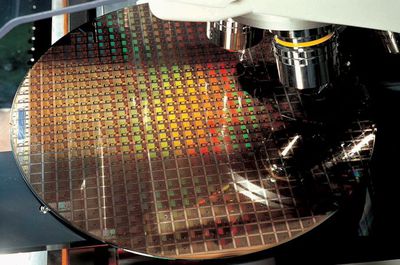Apple Reportedly Refuses to Accept TSMC Chip Price Hike
Apple has reportedly refused to accept a price increase from its sole chip supplier, TSMC, according to Economic Daily News.

The report claims that Apple, the largest customer of TSMC, has rejected the supplier's plans to increase chip prices next year. TSMC has been planning to increase its prices by six to nine percent, depending on the fabrication process.
TSMC's chips were already around 20 percent more expensive compared to those from its direct rivals, but smaller foundries have ramped up their own prices in recent years due to higher material and logistics costs, and TSMC has committed to $100 billion in new investment over the next three years, motivating the company to increase its prices to maintain its premium and pass added costs on to clients.
TSMC was also reportedly keen to stop its clients from canceling orders and ordering more chips than needed in the hope of securing production line space and additional support from contract chipmakers, which has made it difficult for the company to understand real demand.
Following negotiations, Apple has apparently refused to accept further price increases. TSMC makes all of Apple's custom silicon chips, but Apple is estimated to make up more than one quarter of TSMC's entire revenue, meaning that the companies are fairly reliant upon each other. An improvement in the semiconductor industry's supply outlook despite inflation is believed to have hardened Apple's refusal to acquiesce to price hikes.
Like many of Apple's suppliers, TSMC has been wrestling with supply chain issues since 2020. Last year, it was speculated that Apple may have to raise device prices to account for substantial chip price rises.
Popular Stories
Apple today confirmed to Reuters that it has acquired Q.ai, an Israeli startup that is working on artificial intelligence technology for audio.
Apple paid close to $2 billion for Q.ai, according to sources cited by the Financial Times. That would make this Apple's second-biggest acquisition ever, after it paid $3 billion for the popular headphone and audio brand Beats in 2014.
Q.ai has...
Last year, Apple launched CarPlay Ultra, the long-awaited next-generation version of its CarPlay software system for vehicles. Nearly nine months later, CarPlay Ultra is still limited to Aston Martin's latest luxury vehicles, but that should change fairly soon.
In May 2025, Apple said many other vehicle brands planned to offer CarPlay Ultra, including Hyundai, Kia, and Genesis.
In his Powe...
Apple recently updated its online store with a new ordering process for Macs, including the MacBook Air, MacBook Pro, iMac, Mac mini, Mac Studio, and Mac Pro.
There used to be a handful of standard configurations available for each Mac, but now you must configure a Mac entirely from scratch on a feature-by-feature basis. In other words, ordering a new Mac now works much like ordering an...
The calendar has turned to February, and a new report indicates that Apple's next product launch is "imminent," in the form of new MacBook Pro models.
"All signs point to an imminent launch of next-generation MacBook Pros that retain the current form factor but deliver faster chips," Bloomberg's Mark Gurman said on Sunday. "I'm told the new models — code-named J714 and J716 — are slated...
Apple is planning to launch new MacBook Pro models with M5 Pro and M5 Max chips alongside macOS 26.3, according to Bloomberg's Mark Gurman.
"Apple's faster MacBook Pros are planned for the macOS 26.3 release cycle," wrote Gurman, in his Power On newsletter today.
"I'm told the new models — code-named J714 and J716 — are slated for the macOS 26.3 software cycle, which runs from...
![]()


















